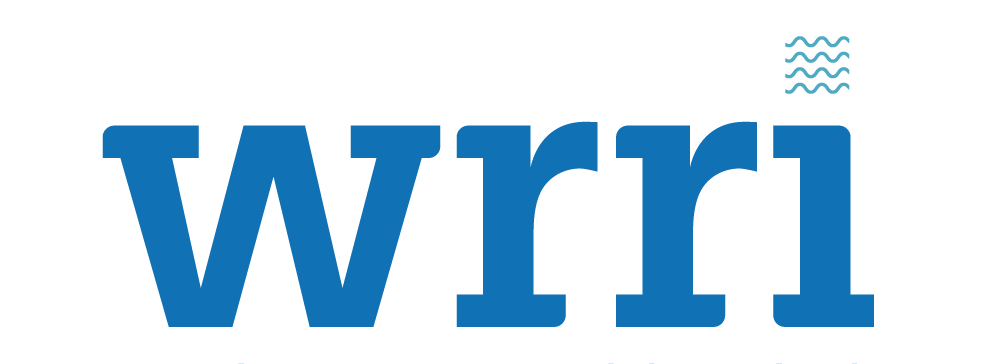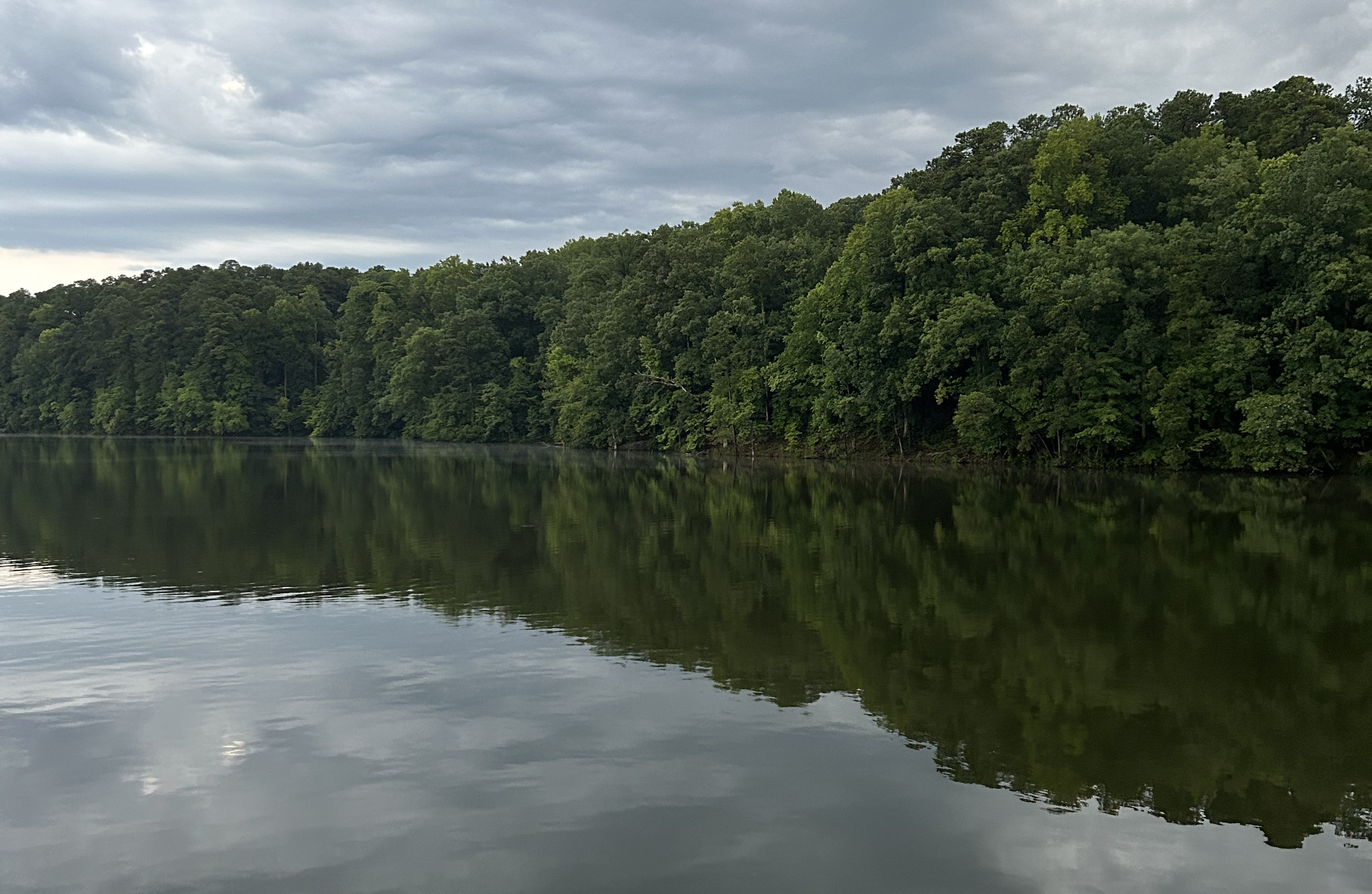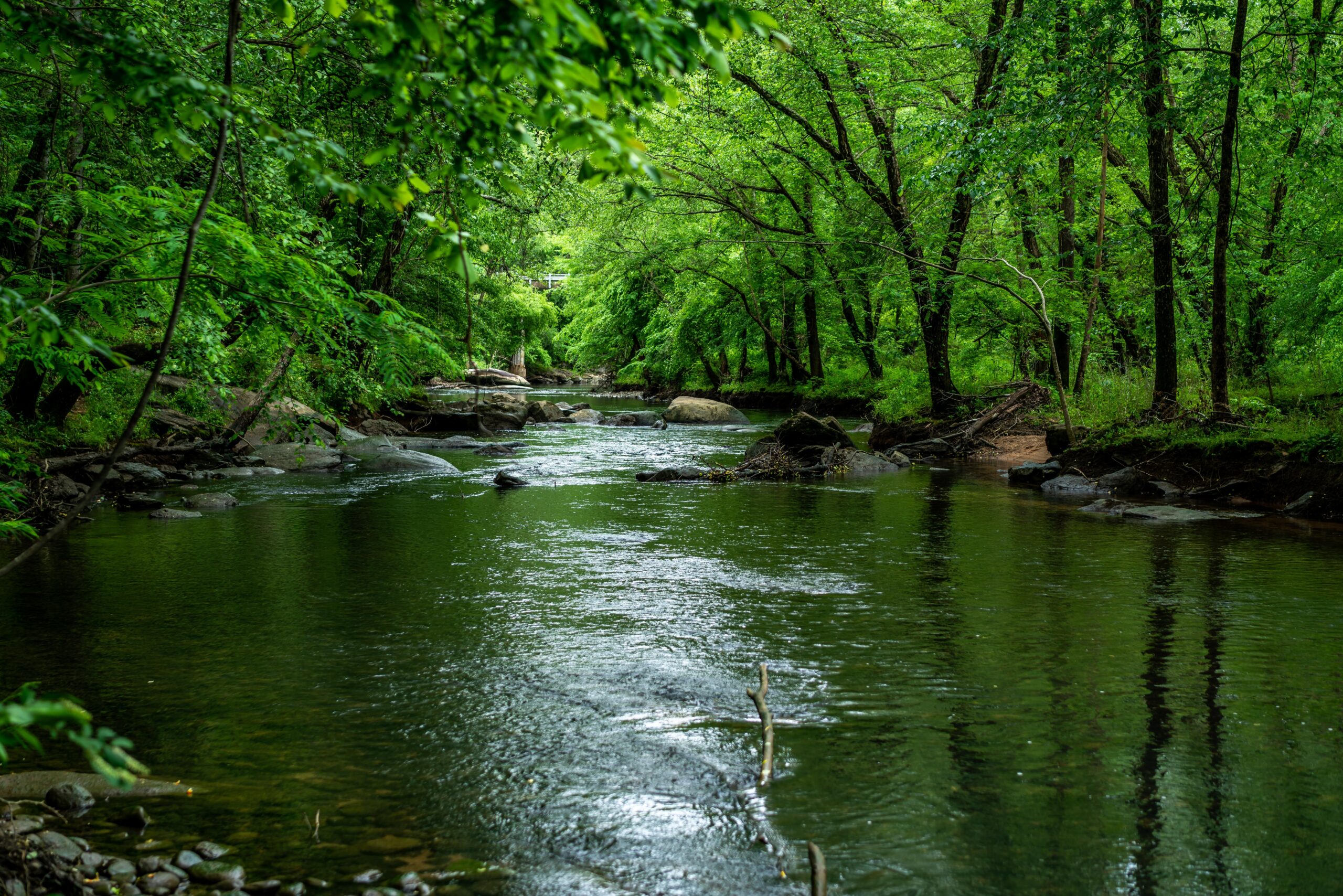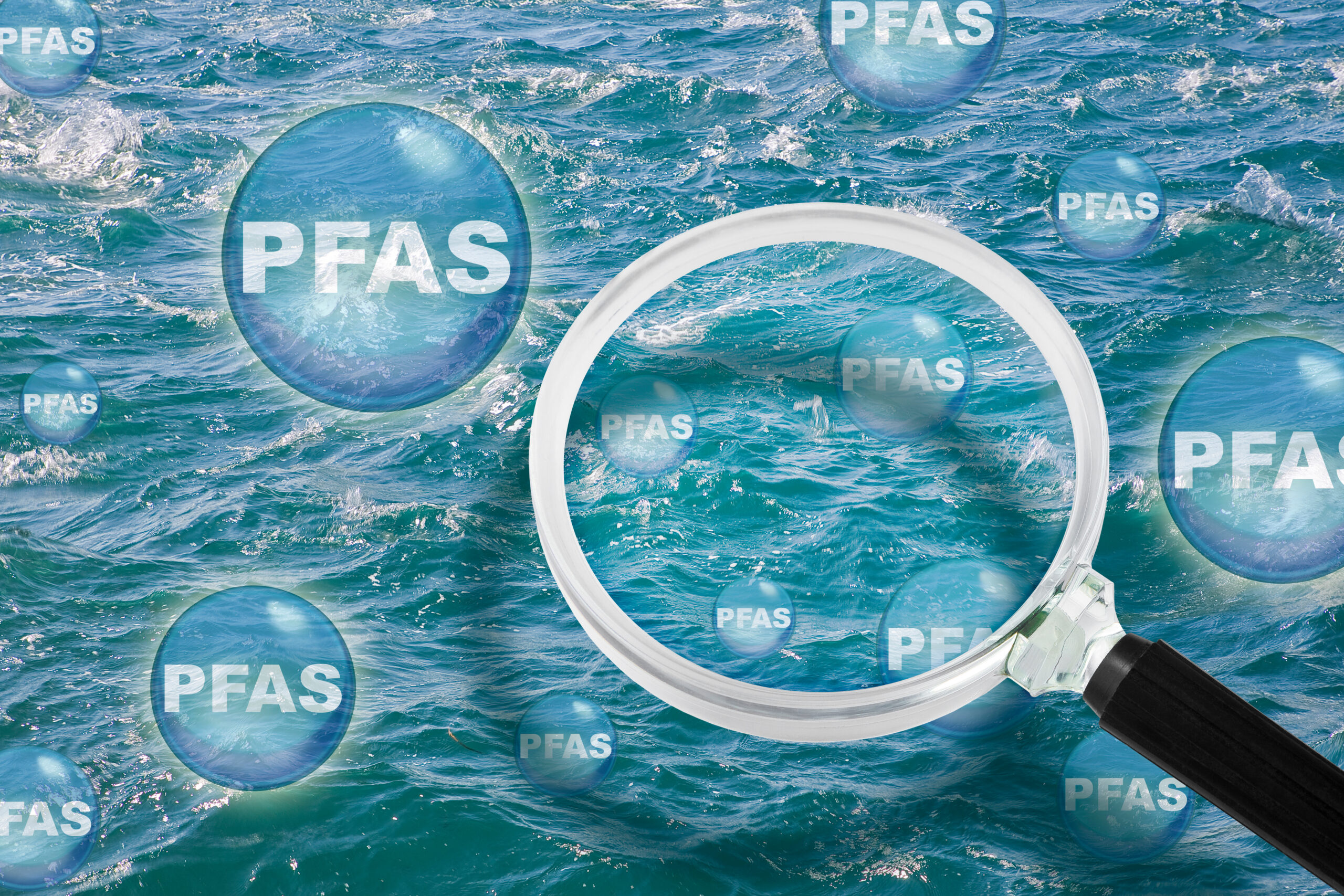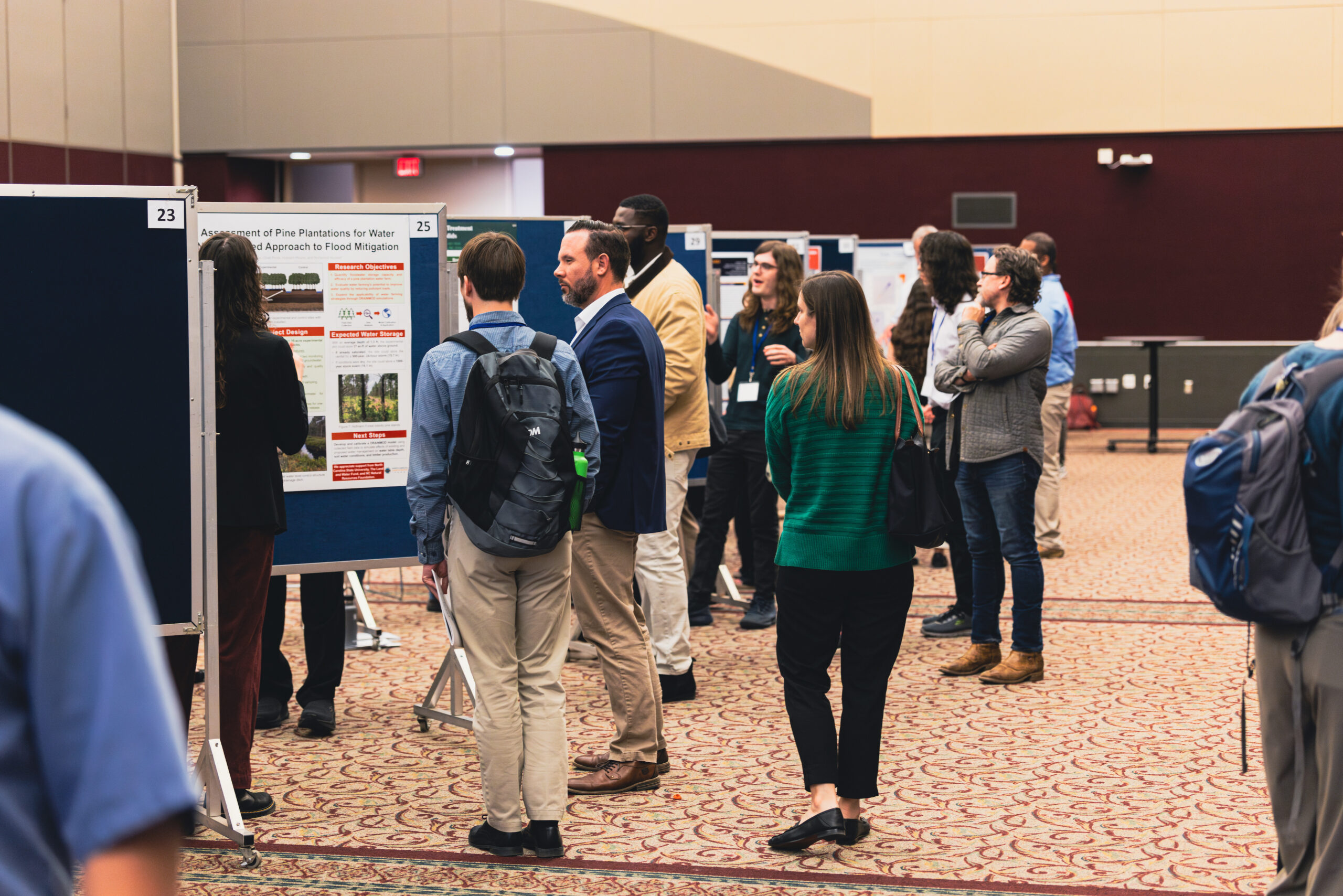Four new projects have received funding from the Community Collaborative Research Grant Program (CCRG). North Carolina Water Resources Research Institute (WRRI) and North Carolina Sea Grant administer the CCRG Program in partnership with the William R. Kenan Jr. Institute for Engineering, Technology and Science (KIETS).
These projects, which couple scientific expertise with local knowledge, foster collaboration between researchers and community members. This year’s CCRG recipients are tackling pressing water-related issues including harmful algal blooms, fishing and aquaculture, and resilience education.
1. Utilizing Advanced Technology for Automated Plankton Sampling and Counting in Hatcheries
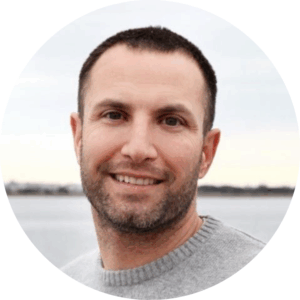
- Scientific lead: David Cerino, Carteret Community College

- Local knowledge expert: Samuel Thomas, Thomas Seafood
David Cerino, Director of Aquaculture Research and Development at Carteret Community College, and Samuel Thomas, owner of Thomas Seafood, are collaborating on a project to enhance the efficiency and accuracy of plankton monitoring and sampling within the blue crab hatchery system at Thomas Seafood.
Successful marine hatchery operations are highly dependent on the availability of high-quality live feeds, which are essential for the growth and survival of larval fish and other marine organisms. These live feeds, such as rotifers, copepods, and algae, serve as the primary food source for early-stage aquatic species in hatcheries and provide essential nutrition for proper development. Hatcheries can reduce the costs associated with maintaining these live feed cultures by shifting to more extensive and cost-effective culture systems, such as fertilized ponds, which rely on natural processes to cultivate live feeds, rather than artificial and energy-intensive methods. By introducing nutrients to the ponds, operators can stimulate the growth of phytoplankton and zooplankton, providing a sustainable food source for larvae.
Although these systems reduce feed costs, they increase the need for frequent sampling and careful management to ensure that feed populations remain within an optimal size and density. This balance between cost reduction and labor requirements is a key challenge faced by hatchery operators striving for both efficiency and sustainability. This project will address current bottlenecks in data collection and improve the overall management of plankton cultures, which serve as a vital food source for larval rearing.
2. DNA Detectives: Working with Local Charter Fishermen to Understand Shark Depredation Events in North Carolina
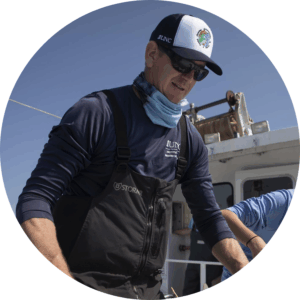
- Scientific lead: Joel Fodrie, UNC Chapel Hill
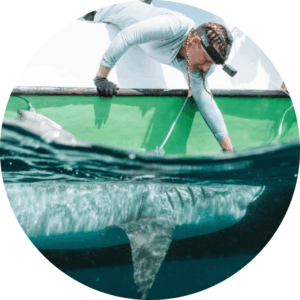
- Scientific co-lead: Chelsea Black, UNC Chapel Hill
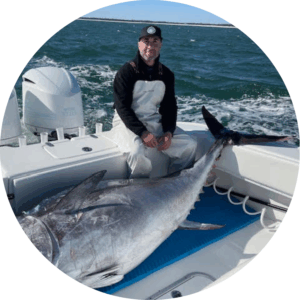
- Local knowledge expert: Anthony Procida, Grassy Sound Charters
Interactions between sharks and fishermen have become increasingly more common within the Atlantic, with some fishers reporting losses to depredation as frequent as one in every three fish in certain areas of North Carolina. Shark depredation events result in a range of negative impacts that include increased mortality of target species, loss and damage of fishing gear, negative fishing experiences, economic losses, and ultimately an increase in negative views towards sharks.
There is a growing need to understand the frequency of depredation events, where they occur and by which species, and how fishers can respond to and mitigate these depredations to avoid retaliation that may have ecosystem consequences. North Carolina serves as an important area for many shark species, yet our understanding of residential and transient shark species that use these waters remains low. This rise of encounters underscores the urgent need to develop effective strategies to mitigate conflict in an area that is crucial to Atlantic shark populations.
Joel Fodrie, a Professor at the Institute of Marine Sciences and Department of Marine Sciences at UNC Chapel Hill, assisted by Chelsea Black, a postdoc at UNC, and Anthony Procida, owner and operator of Grassy Sound Charters, will study shark depredation events off the coast of North Carolina. Calling on his network of local fishermen, which spans across the entire state, Anthony will also serve as a liaison between the fishing and scientific community. The project aims to identify the shark species involved in depredation events through molecular techniques, and foster relationships between stakeholders and scientists. This study will generate prevalence data of shark depredation events across the three major Cape regions in North Carolina that impact the charter fishing community, and will be the first study to use DNA techniques to identify shark species involved in depredation here in NC.
3. Community-led Validation of a Remote Sensing and Deep Learning Approach to Identify Cyanobacteria Harmful Algal Blooms and Toxins in the Chowan River and Tributaries of the Albemarle Sound

- Scientific lead: Lisa Satterwhite, Duke University
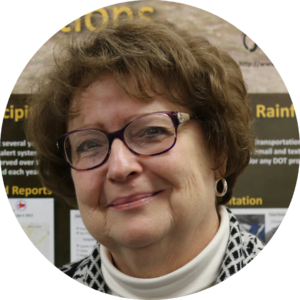
- Local knowledge expert: Colleen Karl, Chowan Edenton Environmental Group
Lisa Satterwhite, Associate Research Professor in the Department of Civil and Environmental Engineering at Duke University, and Colleen Karl, Chairperson of the Chowan Edenton Environmental Group (CEEG), are partnering on a project that studies cyanobacteria harmful algal blooms (CyanoHABs) in Albemarle Sound tributaries. CyanoHABs are an increasing environmental health concern, with documented negative impacts on people and animals. This project aims to create a sustainable system of CHAB surveillance. Using comprehensive water analysis and validated satellite remote sensing, the project will support real-time public health advisories to limit community exposure and safeguard neurological health.
Since 2015, the Albemarle tributaries have experienced lingering seasonal CyanoHABs with dangerously high documented levels of microcystins. A critical datagap is a comprehensive picture of all CyanoHAB species and their associated cyanotoxins in the Albemarle Sound and tributaries. To adequately protect health in coastal communities in the face of anticipated increases in chronic exposure to CyanoHABs, innovative methods are needed to surveille this large estuarine system to enable real time health advisories.
The project aims to complete a comprehensive survey of CyanoHAB species and cyanotoxins, water physical parameters and weather parameters at 14 sites across the Chowan River and Albemarle Sound each month for routine monitoring and additionally during reported CHAB events. Researchers will use high resolution satellite data and machine learning approaches with water sampling to identify active CyanoHABs across the Albemarle Sound tributaries through ground sampling of Cyanobacteria species and toxins, with the goal of developing remote sensing as a tool that will be translatable broadly to other coastal waterways.
4. Supporting Community-Driven Resilience Education and Research

- Scientific lead: Kathryn Stevenson, NC State
- Local knowledge expert: Emma Refvem, Durham Public Schools
Kathryn Stevenson, an Associate Professor in the College of Natural Resources at NC State, and Emma Refvem, a Science Specialist at Durham Public Schools, are collaborating on a project which aims to support ecological, psychological, and community resilience through public schools.
In recent years, North Carolina has experienced devastating climate-related impacts, including Hurricanes Florence, Dorian, Helene, and as communities work together to rebuild, conversations have centered around how to foster resilience across multiple domains. Public schools have played a pivotal role both in immediate recovery efforts and long-term resiliency initiatives. Across the state, schools have served as disaster shelters, information hubs, and the physical space where students and families connect to community resources and assistance. The reopening of schools post-disturbance signals the returning to normalcy, and students reconnect with peers and mentors and to process and grow from disasters.
This project will leverage an NC Sea Grant-supported program titled Ready, Set, Resilience (RSR), a partnership with Duke Marine Lab’s Community Science Program, which helps students learn about ecological resilience through story, build psychological resilience skills through practice, and contribute to community resilience by sharing what they have learned. Expanding on current and upcoming programs and workshops in Carteret County, Durham County, Yancey County, and Buncombe County, Stevenson and Refvem will support Durham Public School teachers to connect with the broader disaster resilience network and create additional standards-aligned materials, including for English Language Learners. The project partners with the Kenan Fellows Program for Teacher Leadership and draws on the wisdom of middle school teachers who are both experts in educational techniques and experienced front-line responders to both acute and chronic needs of their students.
- Categories:
